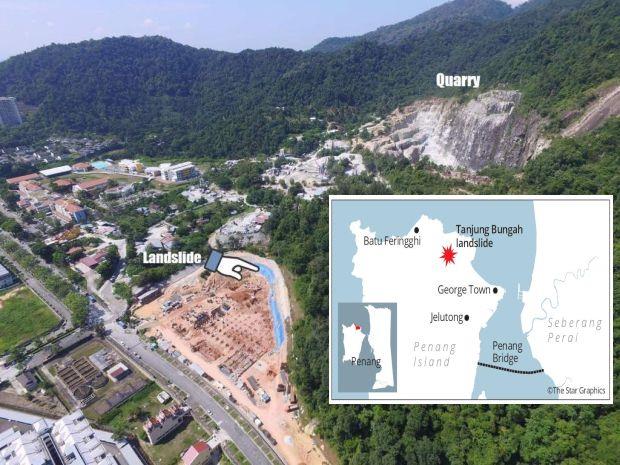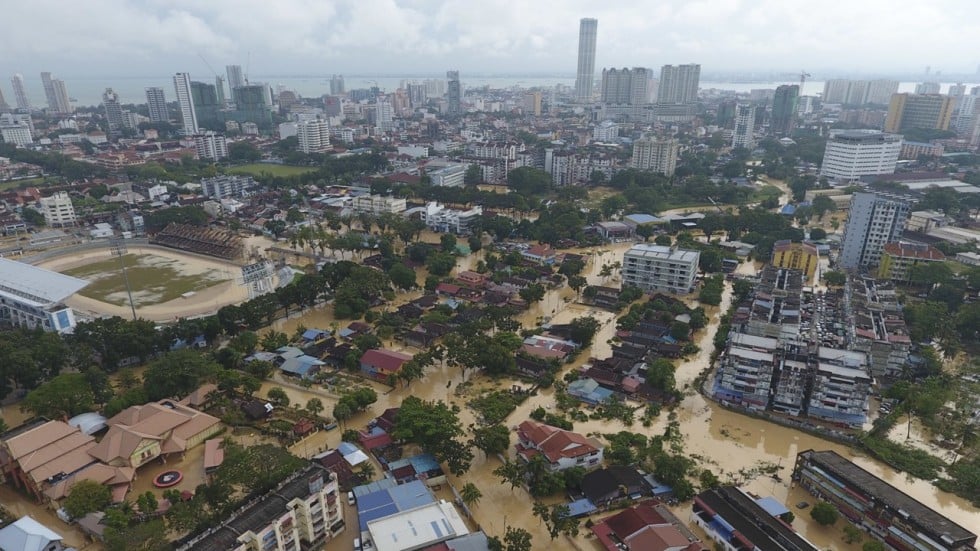KUALA LUMPUR: Fitch Ratings has affirmed Malaysia’s Long-Term Foreign-Currency Issuer Default Rating (IDR) at ‘A-‘ with a Stable Outlook.
According to a statement posted on the interantional rating agency’s website on Thursday the key rating drivers were its strong and broad-based medium-term growth with a diversified export base.
However, it also was concerned about its high public debt and some lagging structural factor.
Main points:
* GDP to grow at 4.4% in 2019 and 4.5% in 2020
* Global trade tensions to impact economy
* Private consumption to hold up well, public investment to pick up
* Outlook for private investment is more uncertain
* Weak fiscal position relative to peers weighs on the credit profile
* General government debt to fall from 62.5% of GDP in 2019 to 59.3% in 2021
* Malaysia relatively vulnerable to shifts in external investor sentiment
* Fitch expects another 25bp rate cut in 2020 on the back of continued external and domestic uncertainty.
* Banking sector fundamentals remain broadly stable
Fitch said Malaysia’s ratings balance strong and broad-based medium-term growth with a diversified export base, against high public debt and some lagging structural factors, such as weak governance indicators relative to peers.
The latter may gradually improve with ongoing government efforts to enhance transparency and address high-profile corruption cases.
Fitch expects economic growth to slightly decelerate in the rest of this year as a result of a worsening
external environment, but to hold up well at 4.4% in 2019 and 4.5% in 2020.
Malaysia is a small open economy that is integrated into Asian supply chains, but it also has a well-diversified export base, which helps cushion the impact from a potential fall in demand in specific sectors.
Global trade tensions are likely to have a detrimental effect on Malaysia’s economy, as with many other countries, but this may be partially offset by near-term mitigating factors, such as trade diversion, in particular towards the electronics sector.
Private consumption is likely to hold up well and public investment should pick up again in the next few years after the successful renegotiation of some big infrastructure projects, most prominently the East Coast Rail Link.
However, the outlook for private investment is more uncertain. FDI inflows were strong in the past few quarters, but investors will continue to face both external trade and domestic political uncertainty.
The Pakatan Harapan coalition took office in May 2018 with very high expectations. It has set a number of policy initiatives in motion, but holds only a small majority in parliament and has seen its previously high public approval rates fall significantly.
Uncertainty about the timing and details of the succession of the 94-year old Prime Minister Tun Dr Mahathir Mohamad also continues to linger.
A weak fiscal position relative to peers weighs on the credit profile. The government’s repeal of the Goods and Services Tax (GST) and replacement with the Sales and Service Tax (SST) soon after it took power has undermined fiscal consolidation.
The government aims to offset the revenue loss through measures to strengthen compliance, the introduction of a sugar tax and an increased stamp duty. Its fiscal deficit target for 2019 of 3.4% of GDP, which we believe will be met, includes a special dividend from Petroliam Nasional Berhad (PETRONAS, A-/Stable).
Political pressures and growth headwinds could motivate the government to increase its current spending, but we believe that if it does so, it would seek additional revenues or asset sales to contain the associated rises in the deficit and public debt.
Fitch estimates general government debt to gradually decrease from 62.5% of GDP in 2019 to 59.3% in 2021.
The debt figures used by Fitch include officially reported “committed government guarantees” on loans, which are serviced by the government budget, and 1MDB’s net debt, equivalent at end-2018 to 9.2% and 2.2% of GDP, respectively.
The government guaranteed another 9.2% of GDP in loans it does not service. The greater clarity provided by the government last year on contingent liabilities negatively influenced the debt ratios, but this is partly offset by the improved fiscal transparency.
Significant asset sales, as intended by the government, could result in a swifter decline in the debt stock than its forecast in its base case.
Progress in implementing reforms that institutionalise improved governance standards through stronger checks and balances, and greater transparency and accountability would strengthen Malaysia’s business environment and credit profile.
The World Bank’s governance indicator is still low at the 61st percentile compared with the ‘A’ category median of 76th.
An important change is that all public projects are now being tendered, which increases transparency, creates a level-playing field and should bring down project costs. Prosecution of high-profile cases may also help reduce corruption levels over time.
Malaysia has been running annual current account surpluses for the past 20 years, and Fitch expects it to continue to do so in the next few years, even though the surplus is likely to narrow to below 2% of GDP.
Foreign-reserve buffers were US$102.7 billion (4.7 months of current account payments) at end-June 2019, while other external assets are also significant, including from sovereign wealth fund Khazanah.
Malaysia is nonetheless relatively vulnerable to shifts in external investor sentiment, partly because of still-high foreign holdings of domestic government debt, although these have fallen to 21% from 33% three years ago.
Moreover, short-term external debt is high relative to reserves, although a significant part of this constitutes intra-group borrowing between parent and subsidiary banks domestically and abroad, reflecting the open and regional nature of Malaysia’s banking sector.
Monetary policy is likely to remain supportive of economic activity, after Bank Negara Malaysia’s (BNM) reduced its policy rate by 25bp to 3.0% last May, which seemed a pre-emptive response to increased external downside risk.
Inflationary pressures are limited with headline inflation at 0.2% in May 2019, still low due to the repeal of the GST and lower domestic fuel prices.
Fitch expects another 25bp rate cut in 2020 on the back of continued external and domestic uncertainty.
Banking sector fundamentals remain broadly stable. Elevated, but slightly declining household debt at 83% of GDP and property-sector
weakness should be manageable for the sector, but present a downside risk in case of a major economic shock.
The sector’s healthy capital and liquidity buffers, as indicated by the common equity Tier 1 ratio of 13.4% and liquidity coverage ratio of 155% at end-May 2019, help to underpin its resilience in times of stress.
SOVEREIGN RATING MODEL (SRM) and QUALITATIVE OVERLAY (QO)
Fitch’s proprietary SRM assigns Malaysia a score equivalent to a rating of ‘BBB+’ on the Long-Term Foreign-Currency (LT FC) IDR scale.
In accordance with its rating criteria, Fitch’s sovereign rating committee decided not to adopt the score indicated by the SRM as the starting point for its analysis because it considers it likely that the one-notch drop in the score to ‘BBB+’ since March 2018 will prove temporary.
Fitch’s SRM is the agency’s proprietary multiple regression rating model that employs 18 variables based on three-year centred averages, including one year of forecasts, to produce a score equivalent to a LT FC IDR.
Fitch’s QO is a forward-looking qualitative framework designed to allow for adjustment to the SRM output to assign the final rating, reflecting factors within our criteria that are not fully quantifiable and/or not fully reflected in the SRM.
RATING SENSITIVITIES
The main factors that, individually or collectively, could trigger positive rating action are:
* Greater confidence in a sustained reduction in general government debt over the medium term.
* An improvement in governance standards relative to peers, for instance through greater transparency and control of corruption.
The main factors that could trigger negative rating action are:
* Limited progress in debt reduction, for instance due to insufficient fiscal consolidation or further crystallisation of contingent liabilities.
* A lack of improvement in governance standards
KEY ASSUMPTIONS
* The global economy and oil price perform broadly in line with Fitch’s Global Economic Outlook (June 2019). Fitch forecasts Brent oil to average USD65 per barrel in 2019, USD62.5 in 2020 and USD60 in 2021.
The full list of rating actions is as follows:
Long-Term Foreign-Currency IDR affirmed at ‘A-‘;
Outlook Stable
Long-Term Local-Currency IDR affirmed at ‘A-‘;
Outlook Stable
Short-Term Foreign-Currency IDR affirmed at ‘F1’
Short-Term Local-Currency IDR affirmed at ‘F1’
Country Ceiling affirmed at ‘A’
Issue ratings on long-term senior unsecured local-currency bonds affirmed at ‘A-‘
Issue ratings on global sukuk trust certificates issued by Malaysia Sukuk Global Berhad affirmed at ‘A-‘
 THE Penang government should first study the assessment rates for different categories of properties before imposing a blanket tax on everyone which is unfair, says Citizen Awareness Chant Group (Chant) legal adviser Citizen Awareness Chant Group (Chant) (pic).He said the state should look into the categories of assessment rates like those imposed in developed countries before imposing the rates on ratepayers.
THE Penang government should first study the assessment rates for different categories of properties before imposing a blanket tax on everyone which is unfair, says Citizen Awareness Chant Group (Chant) legal adviser Citizen Awareness Chant Group (Chant) (pic).He said the state should look into the categories of assessment rates like those imposed in developed countries before imposing the rates on ratepayers.
































































